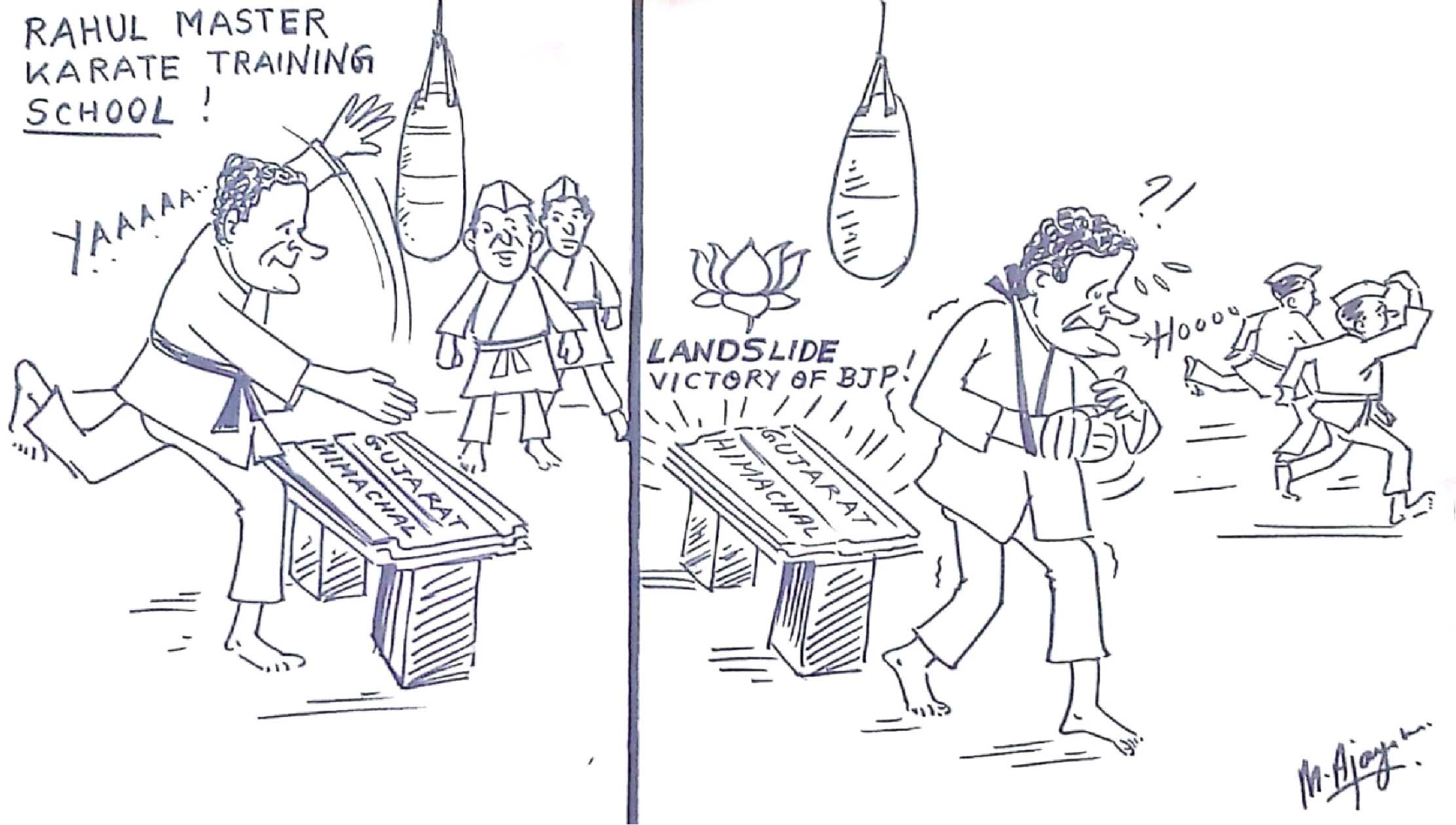 The Congress’s seeming gain in the Gujarat election has left many bitter lessons for it to learn
The Congress’s seeming gain in the Gujarat election has left many bitter lessons for it to learn
Prof Rajvir Sharma
The electoral dust is slowly settling down, providing an opportunity to pause and think about the message of Gujarat. For some, it is the bounce back of the Congress and its leader, Rahul Gandhi because the Congress has gained 19 seats and a rise of 2.5% in vote share.
If one makes a content analysis of the speeches of Rahul Gandhi, one finds that he began with a scathing attack on GST and demonetisation and continued to do so up to the last day of his campaigning.
The ruling party’s decision to extend interest- free loans to the farmers to diffuse their angst also worked to quite an extent. So Gabbar Singh Tax invented by Rahul was laughed at in Gujarat. The gains of the Congress also may not be interpreted as a pointer to increase in the reliability and credibility of the overnight leader of the media and the ally commentators as they were delivered to him by the Patidars. So, it was Hardik who succeeded to establish himself as the leader more as compared to Rahul Gandhi and his ability to impact the voters’ mind.
The way Hardik, Alpesh Thakore, Jignesh Mewani and Rahul Gandhi joined hands raises suspicion which is not easy to rubbish as merely a figment of the imagination, whether they were a part of the advance political strategy crafted by the Congress for Gujarat elections for the last 1-2 years. If one takes it to be true, then it does not augur well for the Congress and Rahul Gandhi since it exhibited their confidence deficit.
The Patidar “anamat andolan” was started with the full understanding that it was not going to be over till the Supreme Court changed its judgment in this regard. Jignesh and Alpesh were promoted to take up stray cases of law and order to the level of a fight of the Dalits against discrimination and injustice/atrocities. This is evident that the Congress after telling Hardik secretly about the formulae for Patidar reservation, hardly referred to the issue ever in the whole election period. Later the play of soft Hindutva with “Janeu” on his sleeves and suffixing pandit before Rahul’s name and drumming his “Shiv bhakti” were all signs of his nervousness about his being a leader. So the caste, religion and community were extensively used by the Congress to draw some political advantage. The foul language used against the PM, the use of Nizami, a supporter of terrorists and enemy of the forces in Kashmir for campaigning in Gujarat, the unauthorised discussion with the enemy state of Pakistan all together raised fingers at the capability of Rahul Gandhi to steer the Congress to victory. It is true that the Congress increased its tally of seats by 19. But it would be pertinent for the Congress to have an indoor introspection on its performance and the efficacy of the leadership of its president more so because his speech after assuming the charge of his party as the president suggests no change in his tone and tenor than what it was before he went to Gujarat. The implicit message of the Gujarat verdict for the Congress is that it shall have to take a clear stand on issues pertaining to Hindutva, to appeasement, to governance, to nationalism and security, to constructive or otherwise criticism of the government and finally to corruption. This would be in its own interest if it wants to fight the upcoming state Assembly and the 2019 national elections in some more acceptable, effective and serious manner as a credible opposition and as an anti-BJP pole.
(The writer is a senior consultant, soss, IGNOU, New Delhi)














Comments